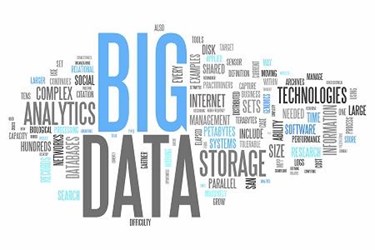How Will Big Data Make Smart Cities
By Ray Parker

Smart cities are urban areas that use technology and data gathered from different sources to improve the lifestyle of residents and manage resources efficiently. In general, data sources are sensors and regulators built in different devices installed in various parts of the city. The Internet of Things (IoT) technology plays a vital role in the collection and transmission of this data and combine it with Big Data power of processing and analysis, city management can get insights that would have never been possible otherwise. Here is how Big Data is influencing smart cities:
Efficient Traffic Control
With the help of several sensors and regulators installed in road-side structures like bridges and streets, smart city management can make use of Big Data to gather statistics like times when the roads are usually congested, what is the reason for congestion and strategies to avoid such happenings in future. It can be beneficial in terms of traffic control as well as pollution.
Long-Term Infrastructure Planning
The key to a good infrastructure of any city is economic growth. The key to economic growth is greater trade, reduced energy cost and overall long-term planning. With efficient use of IoT, city managers can have detailed insights into the overall lifestyle of residents and any drawbacks and pitfalls there might be that can cause losses in the future and could be optimized. It can be a great help for city managers to decide how all that space and structures are currently being used and how they could be used to ensure an improved infrastructure.
Efficient Car Parking
Everyone hates traffic. Big data analytics used with IoT in smart cities can improve the overall transport system by gathering data coming from sensors that detect when a particular slot is full and marking that slot as taken. The traffic can be redirected elsewhere when the whole structure is full and marked taken. This can help ensure efficient planning of how car parking lots are lagging and what could be the steps taken for improvement.
Efficient Use Of Resources
Resource management is one of the biggest achievements in combining IoT with Big Data. For smart cities, the management can install LED lights on streets that respond to natural sunlight and adjust their brightness accordingly. In smart homes, appliances such as IoT enabled heater can give residents an insight into how long the heater runs throughout the day, what is an average consumption of the heater and many such statistics. It can benefit from lifestyle improvement and tenant relationships. So, if you are looking for a property, for example, Dubai Marina apartments for sale, do consider making your home smart while living in a smart city.
Future-Proofing
Predictive analysis is the future of Big Data. Apart from real-time data gathering, historical data can be used and analyzed to watch out for hidden risks. Using predictive analysis on that data, city managers can sneak into the future and estimate upcoming costs, hidden risks and strategies to avoid them and other trends. It can be a great parameter for any government to analyze the growth of current infrastructure and how this can be improved in the future.
Conclusion
Big data analytics have come a long way since its inception. With billions of people opting to live in cities, tech giants are investing in technology to improve cities and homes. No matter it’s one of the apartments in Dubai Marina apartments for rent or some other property in New York, Big Data is disrupting the way home-owners, locals and professionals interact with the surroundings and, that too, for the better.
